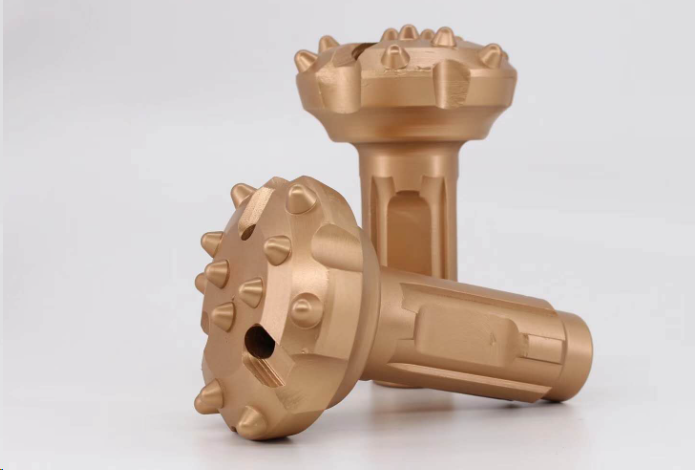Call us 0597-3217790
E-mall fujiankailong@gmail.com
Longyan Kailong Mining Equipment Co., Ltd.
When selecting a down-the-hole hammer, sharp teeth and ball teeth are two common tooth shapes, each with its unique characteristics and applications. So, how do we weigh the pros and cons of sharp teeth vs. ball teeth to make the most suitable choice for our drilling needs?
Sharp teeth drills are primarily designed for higher drilling efficiency in hard and abrasive formations. The sharp shape allows the drill bit to cut into the rock more easily during rotation, making it perform better in hard or abrasive strata. Additionally, sharp teeth drills have better self-sharpening properties, maintaining sharpness during drilling, thus prolonging the drill bit's lifespan.

However, sharp teeth drills also have some drawbacks. Due to their sharper profile, they are more susceptible to impact and wear during drilling, especially in strata containing large particles or hard materials. The wear rate can significantly increase in such conditions. Furthermore, while sharp teeth drills offer faster drilling speeds, they tend to have shallower drilling depths, making them more suitable for shallow drilling.
In contrast, ball teeth drills focus more on drilling depth and stability. The rounded shape of the teeth allows for better impact dispersion and reduced wear during drilling, making ball teeth drills more durable in softer or strata with large particles. Additionally, they can accommodate greater drilling depths, making them ideal for deep drilling.
Nevertheless, ball teeth drills also have their limitations. Due to their rounded profile, they may not be as efficient as sharp teeth drills when cutting into hard rock. Furthermore, ball teeth drills have relatively poorer self-sharpening properties, requiring more frequent sharpening and maintenance.
In conclusion, when choosing a down-the-hole hammer, we need to consider the specific drilling requirements and formation conditions to weigh the pros and cons of sharp teeth vs. ball teeth. Sharp teeth drills may be more suitable in hard or abrasive strata, while ball teeth drills may have an edge in softer or strata with large particles. Additionally, factors like drilling depth and drilling efficiency should be considered to select the most suitable type of down-the-hole hammer.